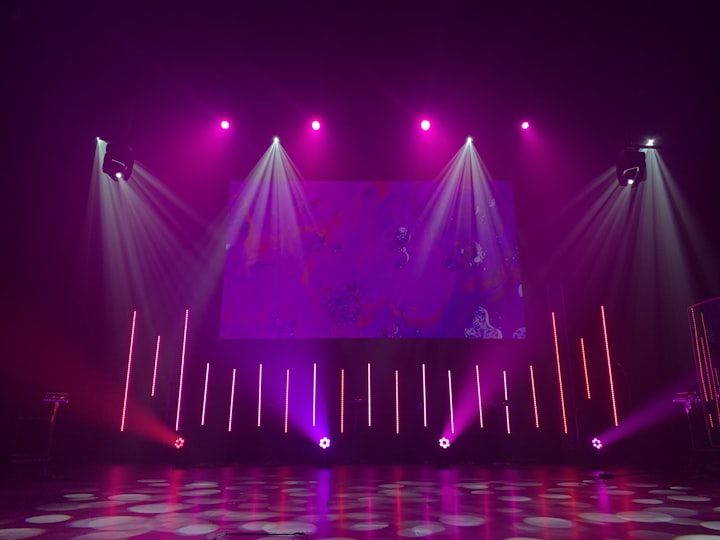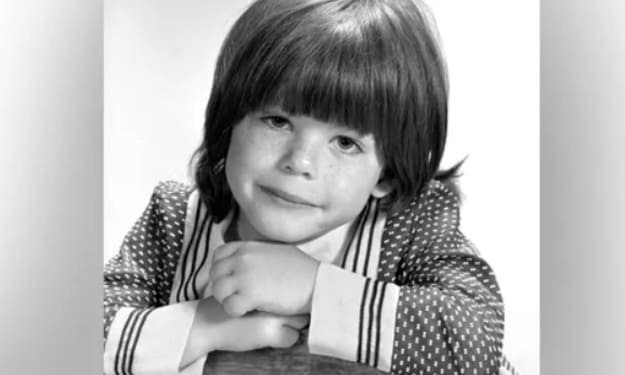Bo Burnham Is Not Your Friend
An Analysis of "Bo Burnham: Inside"

Made Happy?
It's hard to avoid hyperbole when discussing Bo Burnham. After gaining notability through YouTube in 2006, now he disappears for years at a time before releasing a major project. However, every time he releases something, it sends out shockwaves. The first film he has written and directed, Eighth Grade, received widespread acclaim. His most recent offering, Inside, has been nominated for six Emmys. As a longtime fan of Burnham's work, I think he deserves all of this praise and more, but these waves of interest cause people to take parts of his creative output out of context, as they may not have heard of Burnham until whatever most recently put him at the center of cultural discourse. Because of that, important aspects of Inside are being overlooked, particularly in the relationship Burnham creates between the artist and audience.
So here's a taste of context: In 2016 Burnham released Make Happy on Netflix, announcing that he might not return to comedy as performing was causing him to experience panic attacks on stage. In one of the last spoken portions of Make Happy, Burnham says, "If you can live your life without an audience, you should do it." And then he largely stepped out of the public view, as if he was taking his own advice.

Did it work?
Repeat Stuff
In his video ranking the various songs from Inside, Danny Gonzalez pointed out that in an early song ("Comedy") Burnham uses a joke that he previously used in a different special. Gonzalez knocked a few points off his rating for "Comedy" because of this repetition, but this misses the point of what Burnham is doing.
See, one of the major appeals of Burnham's work is how carefully he crafts everything. In a show titled what., Bo begins his performance with a mouthful of water for over a minute for a gag where he spits it out. In Make Happy, he points out how everything is timed down to the word, even the gesture (and he emphasises his point by playing a sound-effect in conjunction with this pronouncement). In an even earlier special, Bo began with a joke about "accidentally" knocking a water-bottle over, just to have an audio-track announce that it was intentional.

Burnham rarely makes sloppy mistakes, so when he reuses a joke, it's unlikely that he got lazy or thought that no one would notice. Instead, it makes more sense to assume that this is a deliberate nod to Burnham's earlier work. He intends for the audience to make connections across his specials. In Make Happy, he begins by parodying the costume he wore in what. When Inside was announced, the trailer featured a clip from the conclusion of Make Happy.
These products are separate, but they are connected by ideas that develop across all of his work.
It's a Beautiful Day to Stay Inside
After the first couple of songs in Inside, Burnham speaks to the camera through a mirror, so that the camera can see itself and Burnham sitting side-by-side. Describing this arrangement, Burnham says that the show will just "me and my camera, and you and your screen, the way that our Lord intended." He specifically says that there will be no audience, which harkens back to his remark in Make Happy: If you can live your life without an audience, you should do that.
In his article for the New York Times, Jason Zinoman called Inside "claustrophobically intimate." Writing for The Ringer, Alison Herman describes Inside as a "personal, highly specific story." Troll through the comment sections for clips of Inside uploaded to YouTube, and you'll find words like Vulnerable, Raw, Personal, Intimate, and so on repeated over and over. People will call Inside honest. But is it?
Returning to Make Happy, at one point Burnham pretends to perform an improvised song, only to reveal that the whole bit was scripted. He concludes by saying, "How does [Burnham] remain contrived? I'm not honest for a second up here."

Was he being honest when he claimed to never be honest? Has something changed so that he is being honest now? Is there vulnerability in this performance, or is there a point behind the artifice?
Not Atlanta
Shirtless, unshaved, and in natural light, at one point in Inside Burnham takes a moment to talk about his mental health, confessing it's approaching "an ATL--which a all time low, not Atlanta." He begins by opening up, expressing that sought-for vulnerability, only to crack a lame joke. He then returns to that confessional tone of voice, before breaking into song to describe how poorly he feels, complete with multi-colored lights and a backing track.
This is familiar territory Burnham: he acts as if he will strive for authenticity, then he draws attention to the artifice of the whole production. Burnham might be honest, or he might be dishonest, but the fact of the matter is that in all of Burnham's specials, Burnham is still in control. If he wants to remain contrived, he will do it, and he will call attention to the way he is doing it as he is doing it. We do not get to see anything Burnham doesn't want us to see. That's always going to augment "vulnerability." Is Burnham's work raw? Only if he wants us to think that it is.
Back to the mirror: Burnham says there is no audience and new crew. Just him and his camera, and "you and your screen." And sure, that feels like a very intimate invitation into the production. But then, after a couple more songs, Burnham chooses to show us a shot of himself, isolated in his apartment, either editing or watching his own song on his own screen.
Is he really inviting us in? Is it our screen that Burnham's interested in? Or is it his own?
So This Dude's Been In Here for a While
Throughout the special, Burnham repeatedly watches himself. At one point he pretends to be livestreaming a videogame, but the videogame is another version of Inside. He performs a song about working class struggles only to follow it with a commentary video on the song, then to follow that with a commentary on the commentary, and then a commentary on the... you get the point. Before performing "Problematic," Burnham watches his old youtube videos projected onto his wall. Even the haunting final shots of the special show Burnham once more watching himself. At one point in the special he proposes that he will never finish the special so that he can keep working on it, because on some level he is performing for himself. He cannot stop watching himself.

At the end of Make Happy, Burnham directly addresses the audience, pointing out that they "probably didn't laugh, but maybe a few times you exhaled out of your nose." When he addresses the audience in Inside, he asks if we're watching it in the background or if we're on our phones. Burnham is distinctly aware of the detachment that separates the viewers from him. And all of this makes the emotional climax of the show so much stranger.
In "All Eyes on Me," with a laugh-track playing in the background, Burnham sings a song with instructional lyrics, telling the audience to get their hands up, to get out of their seats, to pray for him. And yet, he's spent the whole show emphasising the distance between the viewer and him, the performer. Will we get off our couch in our own apartments because Burnham told us to through the TV? Unlikely, and Bo knows it. He knows there's a good chance that he's playing in the background while you check your phone. Burnham knows that you might not really be paying attention. And that audience we keep hearing throughout the song? They're just a recording. Burnham can play with them like they're just another instrument, just another tool like the lights he's constantly fiddling with.
There is no connection. There is just a recording. It's haunting. And the worst part is, this is not just a pandemic thing. In the audio version of what., someone from the audience shouts, "I love you!"
Bo Burnham's response: "You love me? That's very nice. You love the idea of me. You don't know me. But that's okay. It's called a parasocial relationship: it goes one way, and it's ultimately destructive, but please, keep buying my shit forever."
Maybe I'll Sit on the Couch and Watch You Next Time
This is the horror at the end of Inside, then: Burnham made good on his effort to live his life without an audience, but his efforts were doomed from the start because he has always been his own audience. The crowds? They're just a tool he can play with. He was always aware that we weren't his friends. He is always in control, and any vulnerability he shows is tempered by the fact that he is choosing it. He can put up as many barriers between the outside viewer and himself as he likes, but he can never fully escape the horror of this experience because he cannot lose himself. As long as there is a Bo Burnham watching Bo Burnham, the panic will continue.
"I want this to stop," one Burnham says while watching a series of other Burnhams. "I want this to stop."
But at the end of the special, Burnham is still watching himself. He is trapped inside by the pandemic, but he's also trapped inside by his own mind, and that is the audience that he will never escape.
I give Bo Burnham: Inside 5 stars.
About the Creator
Littlewit Philips
Short stories, movie reviews, and media essays.
Terribly fond of things that go bump in the night.






Comments
There are no comments for this story
Be the first to respond and start the conversation.